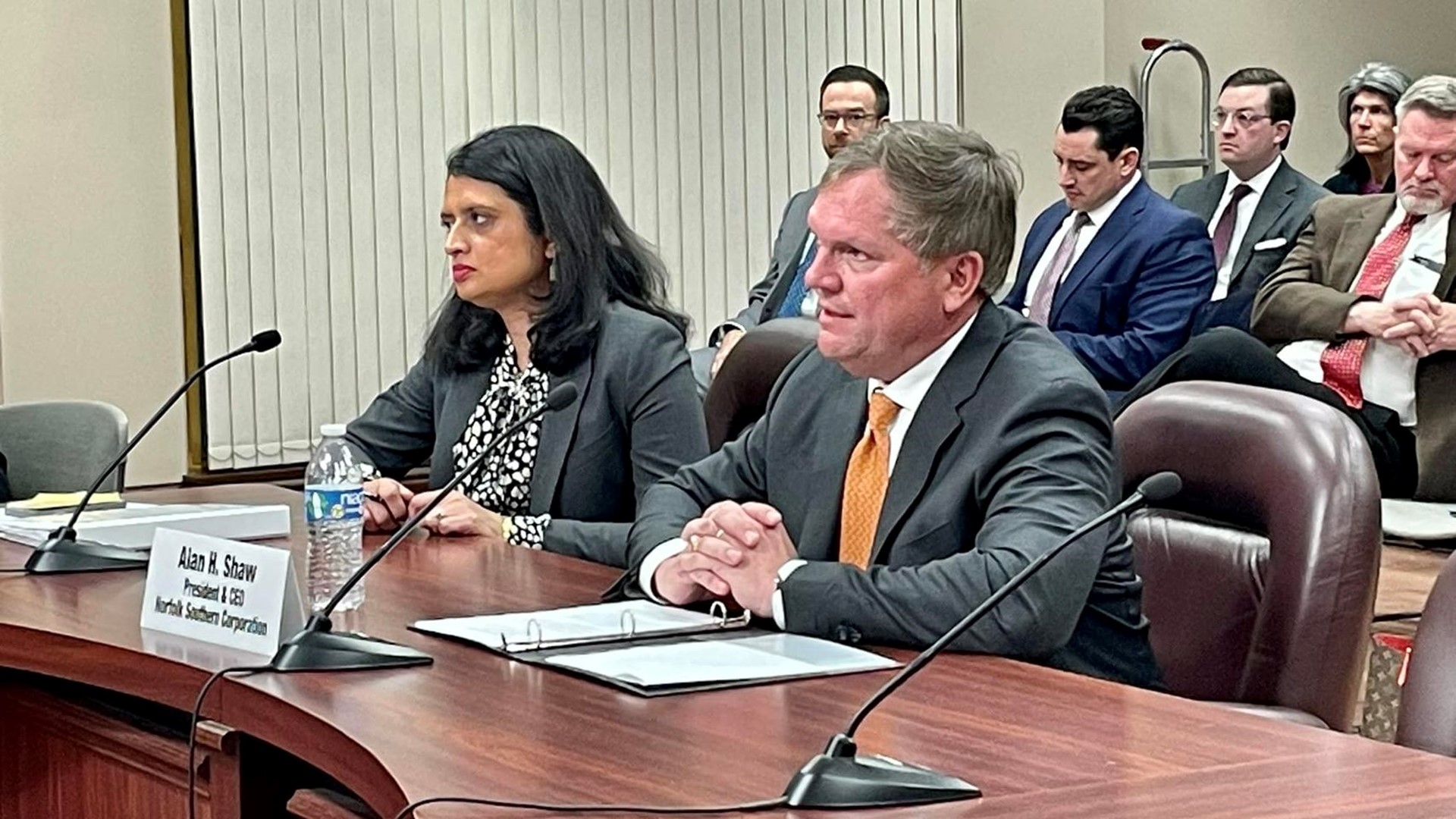HARRISBURG, Pa. — In the aftermath of the Feb. 3 train derailment in East Palestine, Ohio, Norfolk Southern CEO Alan Shaw testified before Pennsylvania lawmakers on March 20.
The Pa. Senate Veterans Affairs and Emergency Preparedness Committee had subpoenaed Shaw earlier in March for the appearance after previously requesting his testimony.
Lawmakers honed in on answering the question of who made the decision to “vent and burn” five derailed train cars—a decision that led to mandatory evacuations and then a large release of hazardous materials.
Shaw repeatedly pointed to the unified command, a group of government agencies and the train company that in theory work together during emergencies.
“The response was managed under the Unified Command Structure formed shortly after midnight with the local fire chief serving as the incident commander,” Shaw said.
The fire chief where the accident occurred would be East Palestine Fire Chief Keith Drabick, who could not be reached for comment.
However, Gov. Josh Shapiro wrote a public letter on Feb. 17 accusing Norfolk Southern of making the decision unilaterally “without coordinating with state agencies, forcing those agencies to react without knowing the plan’s details.”
State Sen. Doug Mastriano (R-Adams), who chairs the Senate Veterans Affairs and Emergency Preparedness Committee, said in an exclusive post-hearing interview that he was skeptical of Shaw’s claim.
“I really doubt that a fire chief in a small town would make such a big decision,” Mastriano said.
Scientists and environmental groups have been documenting the environmental damage caused by the burn’s chemical fallout.
The Ohio EPA estimated the fallout killed nearly 44,000 fish and other aquatic animals.
Both the U.S. EPA and independent researchers found elevated levels of some hazardous chemicals in the air.
Shaw, though, insisted no long-term health effects are expected to come from the chemical release.
“I think it’s important to note that the vent and burn worked,” Shaw said. “The air testing process, indicated by the EPA, by the Ohio EPA and by the Pennsylvania Department of Environmental Protection, notes that the air is clean. Water testing notes that the water is safe. We avoided the potential for a catastrophic, uncontrolled explosion that would have potentially shot harmful gas and shrapnel throughout the community.”
State Sen. Mastriano said he also doubted the veracity of that statement: “This whole thing about a controlled burn? There’s nothing controlled about that burn.”
Earlier this month, Norfolk Southern committed to pay more than $7.3 million for damages to Pennsylvania residents and first responders in Beaver and Lawrence Counties.
Shaw said the company would continue to assist affected residents, but would not commit to specifics like how long water monitoring would last or whether residents outside a one-mile radius of the incident would be compensated to relocate.
Paul Pokrowka, a representative of SMART, a railroad operating union, said he didn’t learn anything new from the hearing.
“It was a lot of runaround, so it is not good enough. It is not good enough,” he said.
Shaw did not express total support for a rail safety bill introduced last week in the U.S. House, but said he supported provisions such as enhanced train car standards, enhanced funding in research funding for wayside detectors and enhanced notification for first responders.

